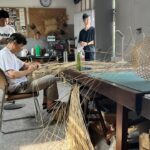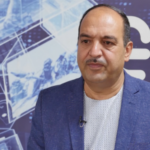Editor’s Note:
This year marks the 10th anniversary of the Belt and Road Initiative (BRI) proposed by Chinese President Xi Jinping. Through the lens of foreign pundits, we take a look at 10 years of the BRI – how it achieves win-win cooperation between China and countries along the Belt and Road and how it increases people’s sense of fulfillment in these countries.
Stephen Brawer(Brawer), Chairman of the Belt and Road Institute in Sweden, discussed these issues with Global Times (GT) reporter Wang Zixuan, as well as his understanding on the Global Development Initiative, Global Security Initiative, and Global Civilization Initiative.
GT: This year marks the 10th anniversary of the China-proposed BRI, to what extent has the BRI been recognized by your local people? What do you think is the biggest change brought by the BRI in the past decade?
Brawer: I think it’s very clear that the world is opening their doors to the initiative, and I see that there is a shift in the direction of world policy. It’s very positive for global development. However, the US and generally the G7 are at least presently not willing to either accept or understand the importance of it. This is in a very unfortunate situation. But I don’t think that is stopping the role of China and the world moving in another direction. There are clear indications that many countries are wishing to do this.
The danger is the geopolitical aggression and misrepresentation that is coming from Western power circles that potentially are causing, in the worst case, a global conflict. If it were to escalate into a wider conflict, and then I think that all of the potential good work for humanity would end tragically, for all of us. We have to work to prevent that. I think that does involve recognizing that there has to be a shift in the thinking from the US and the G7.
But I believe that there should be a shift in the thinking in the Western leadership to recognize the advantages of the BRI, not only for China or for developing nations, but for Europe and the US, who are not doing well economically under the dollar-based system. They are stubbornly refusing to consider it and to act on the benefits, because they are not very open to a dialogue or discussion at the moment, but that should not stop us from promoting the truth of the matter.
GT: Some Western media outlets claimed that the development of BRI is slowing down with the so-called “China debt trap.” How do you see this claim?
Brawer: What I’ve mentioned is that the debt trap narrative has no substance. It is a pure propaganda tool that is churned out by Western think tanks to misrepresent the reality of the circumstances. It’s part of a narrative that is based on maintaining the idea of Western power and expecting that the whole world is going to acquiesce. Those days are over and the new world is arising. It’s in the interests of the people in Europe and the US rather not to resist this with a conflict and confrontation, but to embrace it and cooperate, not only for the benefit of the global community, but also for recovering Western economies. They should change the incompetent thinking of the present Western economy.
There were great periods in American history. Now they don’t like China. That’s very silly and childish. It’s time to get together and overcome that kind of thinking. Hopefully we will do it before they endanger all of humanity with their aggression or military conflict. That’s a challenge for all of us.
GT: The EU also proposed Global Gateway, and the US proposed Build Back Better World, what are the differences between these projects and the BRI in terms of their implementation?
Brawer: The Build Back Better and Global Gateway have already been even publicly identified as so-called policies to compete or to challenge the BRI. They don’t work. They have no true substance. The entire dollar-based Western system is based on pure monetary speculation. They have no resources to do anything. I think most of the world in the developing sector is aware of that. They are doing it only because they are trying to do everything possible to convince, especially the Western audience that China is a danger.
If they were willing to participate in cooperation on the BRI from a Western standpoint, with Western technology that would be beneficial for everybody rather than criticizing China, this would be a great benefit to the rest of the developing sector, but they’re too narrow-minded and stubbornly irrational to accept that thinking. It’s up to us to work in the direction to bring them to their senses.
GT: Chinese President Xi Jinping has put forward the Global Development Initiative, Global Security Initiative and Global Civilization Initiative. What do you think of China’s solution and China’s role for global development and governance?
Brawer: The initial BRI has been a platform. In addition to extending the willingness to work with the rest of the developing countries to bring fruition, the Global Development Initiative, the Global Security Initiative, and the Global Civilization Initiative, are continued moderation of the initial idea and develop different and more substantial ways of making the success of global development and the BRI work.
They’re very important, in Western Europe and the US, and I think many people obviously notice this, but they’ re riding their own course. They’re not getting that information. It’s being censored. They claim they are democratic, but they are democratic only if you follow their narrative. If you have a different idea, then there’s no democracy to be had. That’s how the mainstream media works in the West. It’s a disgrace.
GT: Some countries are engaging in “small cliques” and instigating division in the world, do you think it is in line with the rights to development and fundamental interests of these countries and their people?
Brawer: They’ve done this for many years in one form or another, not modernizing, not industrializing, not eliminating poverty, which is the basis for the successful rise of China as an economic power, but also as a potential contributor to the global development perspective. People who don’t have enough to eat, who are not in a situation where their living standards are unacceptable, and then go and tell them about democracy or lecturing them about human rights,
Now the world is changing. I think they’re going to have to do it if we don’t have a global conflict or war, even the Western Europeans and the US eventually are going to have to wake up and change their way of thinking. There will be issues that maybe have to be discussed or debated. But I think we can resolve those in a healthy way. That’s a challenge, Europe is like back in the dark ages.
It’s very important for the people in China who are frustrated by this demonization to realize that it is not universal. It may be decision makers who are, unfortunately, on this very narrow and a disrespectful view.
But I’m happy that people here can hear my voice. At least here, there are people in the West who understand what we’re doing is very important to give them hope and understand it. There is a future where we can cooperate rather than demonize the way this presently goes.













